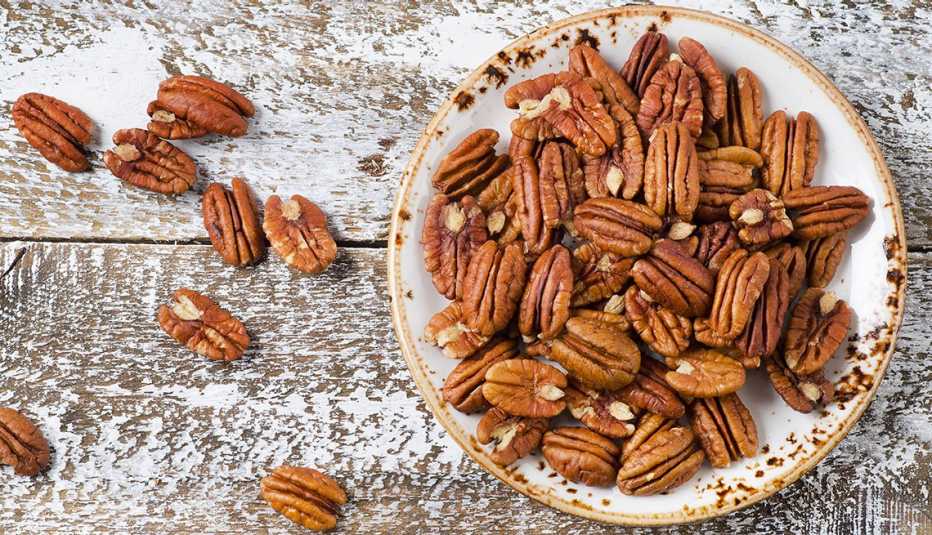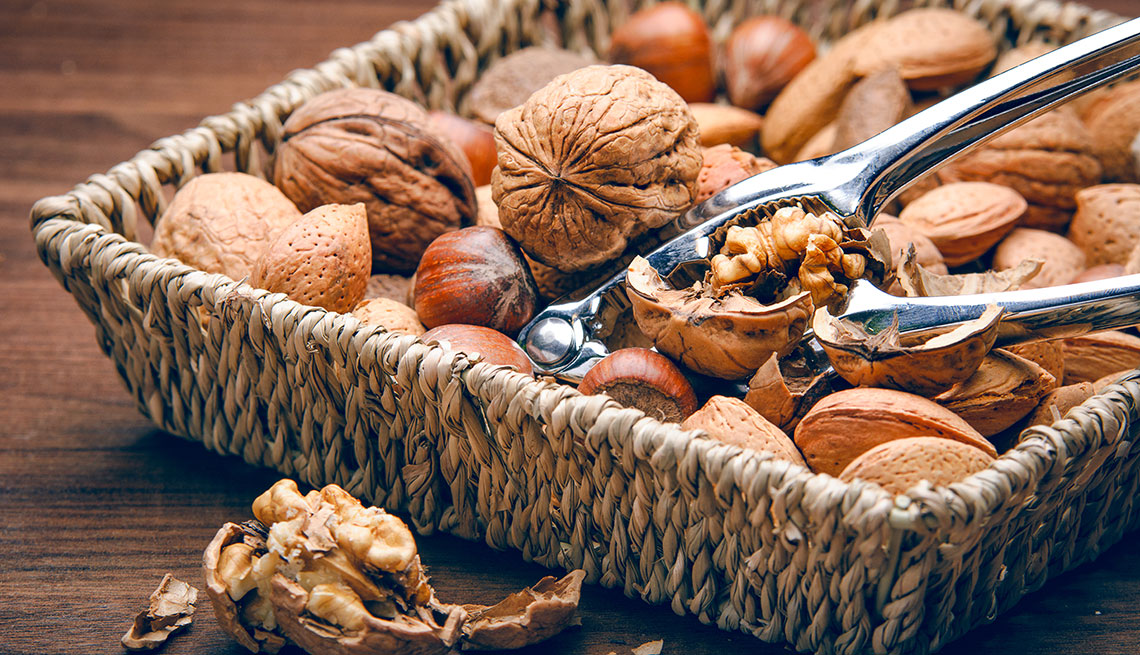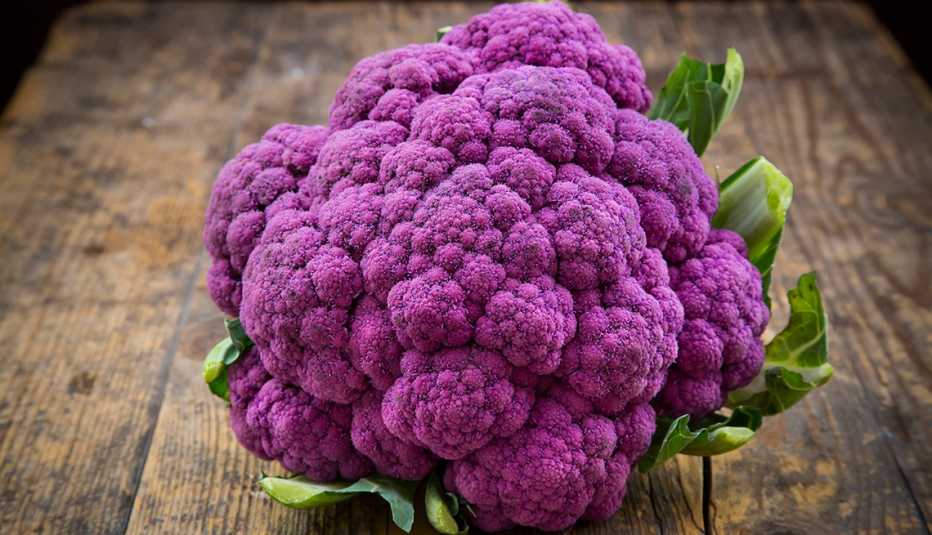Staying Fit
Squirrels are clearly smarter than we give them credit for — their favorite food offers a wealth of health benefits. Nuts are a convenient, healthy and tasty snack that offers benefits such as fiber, plant protein, good fats, vitamins, minerals and antioxidants.
While the grams of fat per serving in nuts may scare off dieters, a majority of the fat grams in mixed nut products are from beneficial monounsaturated fats and polyunsaturated fats, according to WebMD. Additionally, every ounce contains roughly 5 grams of protein. While you should still be conscious of portions — most experts recommend a handful or so as a serving — nuts are packed with healthy calories. But which ones are the best? It depends on what you are looking for and how much you are willing to pay.


AARP Membership— $12 for your first year when you sign up for Automatic Renewal
Get instant access to members-only products and hundreds of discounts, a free second membership, and a subscription to AARP the Magazine.
Raw vs. oil-roasted
Going raw gives you the best overall health benefits with the lowest calorie count, but not by much, Prevention.com reports, based on data from the USDA's National Nutrient Database. A study comparing raw and oil-roasted cashews found that oil-roasted are only slightly higher in calories, and they offer the same nutritional benefits such as protein, fiber and folate. Raw have a slight advantage in iron and magnesium content, but roasted are still super-healthy. So go ahead and indulge, just make sure they are cooked in organic oil and only lightly salted, according to Prevention.
Peanuts vs. tree nuts
Tree nuts such as almonds and walnuts are considered the nut elite and are prized for their vitamins, minerals and healthy fat content , reports the Harvard Health Blog. But on the downside, they tend to be a bit pricey. Thankfully a 2015 study published in JAMA Internal Medicine found that the much more affordable peanut, which is actually a legume, offers the same nutritional values as its pricier tree friends, particularly for heart health. "Consumption of nuts, particularly peanuts given their general affordability, may be considered a cost-effective measure to improve cardiovascular health," the study reported.
Go nuts for variety
If you can afford the slightly more pricey snack, tree nuts offer unique health benefits as well as flavors. Small studies have found that almonds may help reduce risk factors for heart disease and diabetes, Healthline.com reported. Additionally, pistachios offer high fiber values and may reduce blood sugar levels and risk factors for high blood pressure and weight gain. Large studies also found that eating walnuts significantly reduced total cholesterol and LDL cholesterol, while increasing "good" HDL cholesterol, according to Healthline. Brazil nuts, which originate from the Amazon, are a rich source of selenium, a mineral that acts as an antioxidant and can help reduce cholesterol and inflammation levels, although they are high in calories and only small amounts are needed to get the benefits.
Don't pass on pecans


Some people avoid pecans because they are often associated with indulgent desserts, such as pecan pie and pralines, nutritionist Cynthia Sass writes for Health.com. But on their own, pecans offer unique nutritional perks, including high levels of antioxidants that have been tied to heart benefits. "Compared to other nuts, pecans also have the highest levels of gamma-tocopherols, which is a form of vitamin E and another key antioxidant."
Pecans are an excellent source of thiamin and zinc, as well as manganese and copper, according to Sass. Manganese helps with blood sugar levels and healthy bones, and copper aids in iron absorption and immunity. Pecans also offer a bit of extra sweetness, yet contain only 1 gram of sugar, making them a great addition to a variety of dishes.

































































